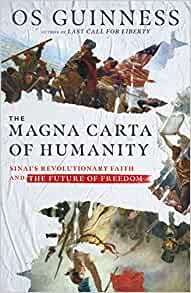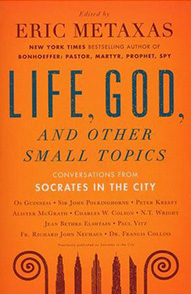Belief is Irrelevant

Belief is Irrelevant
Now that I have your attention, let me restate that somewhat. What the group believes is totally irrelevant. What you and I believe, may or may not also be irrelevant but at least merits scrutiny.
Observation–Interpretation–Belief
Beliefs tend to be over-rated. They always have. That’s because beliefs most often follow the shortcut of “Observation–Interpretation–Belief” or in our culture “Communication–Acceptance (based on authority)–Belief”. A millennium ago, most folks “believed” the Earth was flat. Contrary to what we’ve most often been led to “believe”, that was not the case when Columbus sailed the ocean blue. The Earth had been theorized to be round for hundreds of years before Columbus was born. However, Captain Columbus did grossly under-estimate the diameter of our planet, “believing” his trip across the pond would be about 3,500 miles when, in fact, it turned out to be a bit over 14,000 miles based on his interpretation of his own incomplete and errant observations.
Communication–Acceptance–Belief
Perhaps the most dangerous and pervasive shortcut of our time is the notion that we should believe something based on the perceived authority of the communicator. We accept as fact, that which we hear from members of our herd or even some talking head on the network news.
A favorite quote of today’s social media “influencers” is from the character, Indigo Montoya in “The Princess Bride” — “You keep using that word. I do not think it means what you think it means.” They even employ a plethora of visual memes to lend added credence to their bold assertion that they are more knowledgeable than all whom they disagree with. Anyone who questions the authority of these herdmasters runs the risk of cancel culture wrath. Yet, why should we not question their thinking and even our own interpretations? We might just avoid making the same mistakes Columbus made.
The Scientific Method
“Isaac Newton (1642–1727) famously remarked, “If I see further it is by standing on the shoulders of giants.” Unfortunately, too few who quote this line realize that Newton was not only quite serious but quite correct. Science did not suddenly erupt in a great intellectual revolution during Newton’s time; this era of superb achievements was the culmination of centuries of sustained, normal scientific progress. After all, Newton’s First Law of Motion was simply an expansion of William of Ocham’s (1295-1345) insight that once a body is in motion, it will remain so unless some force, such as friction, acts upon it. This was refined by Jean Buridan (1300-1358), who developed the principle of inertia (that unless acted upon by an external force, bodies at rest will stay at rest and bodies in motion will stay in motion). Inertia was further refined by Galileo (1564-1642), who, characteristically, claimed more credit than he deserved. Of course, Newton’s First law was merely the starting point for his magnificent system of physics, but contrary to claims made on his behalf by the philosophers of the so-called Enlightenment, Newton didn’t have to start from scratch. Rather, the glorious scientific breakthroughs of the sixteenth and seventeenth centuries were based on the work of a long line of natural philosophers.” — Rodney Stark (How the West Won – the Neglected Story of the Triumph of Modernity)
The whole concept of the scientific method — which brought about every scrap of intellectual and technical knowledge providing the lifeblood of our current existence — is that we not only observe what others have found to be true but that we think critically about it, recognizing the cracks in their hypothesis as well as their genius. Ptolemy, in his second century publication, Alamgest, theorized that the Earth was the center of the solar system and went on to create a set of maps that accurately predicted the position of planets based on the Earth-centric model. Ptolemy’s work was the mainstay of astronomy until Copernicus refuted it in the 1500’s. Thirteen hundred years of “belief” went out the window when someone more observant came along and spotted the crack.
The whole concept of scientific journals is not the creation of a platform from which scientists may brag of their great discoveries but one from which they may disseminate their discoveries for peer review and criticism/revision. One little-known goldmine of current thought is
https://www.omicsonline.org/scientific-journals.php a repository of scientific journals that anyone can read though, not unlike myself, they may struggle to understand. Wouldn’t it be great if we each had a trusted forum where we could put forth our beliefs for scrutiny by mentors who would rather collaborate with us than judge us?
The real question for both our work and personal lives is, “Why do we assume that which we know is ‘true’ or the ‘right way to do things’ simply because someone of perceived authority informed us that ‘it’s always been done that way’?” Why do we not live by the motto of “Question Everything?” Why do we base our beliefs on whether or not we like or dislike those people who believe or disbelieve the same things?
Francis Collins, in his book, “The Language of God”, provides a compelling explanation of why his scientific research and his faith in God not only fail to refute each other but, rather, they complement each other. His quote, “Truth is Truth. Truth cannot disprove Truth.” Is more than an adage. It’s a foundational premise for us to question everything, especially our personal beliefs, with the understanding that genuine Truth is not fragile and, unlike the herdmasters of our time, it can withstand even the harshest criticism. Moreover, it it’s not empirically, demonstrably “true”, what value does a belief have, no matter how good it makes us feel?
See the cracks in this missive? Hit that “reply” button and let’s talk. I’ll buy the coffee.
If you look for truth, you may find comfort in the end; if you look for comfort you will not get either comfort or truth – only soft soap and wishful thinking to begin, and in the end, despair.
― C.S. Lewis
Good Reads. Even Better Listens.
The Magna Carta of Humanity
Os Guinness
You might not agree with everything this guy says (I’m not sure I agree with everything in he says) but you sure as heck won’t walk away from it
without being forced to do some critical thinking, all-the-while realizing that Mr. Guinness is far more than just a pretty name on a beer bottle. He may well be one of the preeminent thinkers of our day.

Socrates in the City
Eric Metaxas
Don’t read this book! Get the Audible version. It’s a collection of talks by speakers invited to the “Socrates in the City” sessions in New York City back in the early 2000’s. Many of the speakers are from Great Britain, with sometimes hard to understand accents but they give serious talks followed by question-and-answer sessions in which they demonstrate not only the expertise implied by their credentials but their profound respect for even those who disagree with them.












